Whether it’s something to put in a sandwich or a quick solution for a chicken stir-fry, prepacked cooked meats are becoming a popular purchase for time-starved consumers.
According to IRI, the total cooked meats category is worth £2bn and growing by 5% year on year. The prepacked sector, which is worth £1.6bn, is driving that growth, with sales increasing by 8% year on year, while the deli sector is declining by 3%. Convenience stores make up £175m of the total market and sales through the channel are up by 6% year on year.
Matt Pullen, marketing director at Bernard Matthews, says: “There’s a shift from loose deli meats to prepacked cooked meats. Prepacked is easy, convenient and fits people’s needs. Much of the growth is from own label. That’s under development in convenience and won’t develop at the same rate because consumers look for the trust and reassurance of a brand.”
Products such as cooked poultry are growing quite rapidly, says Pullen. “Meal components like cooked poultry pieces, which you can throw into a salad or stir-fry, are growing in popularity. It’s a quick solution that you can pick up on the way home as a last-minute thought. We’ve got to look at how we can drive that in convenience. People also use cooked meats as a snack - that’s a growing trend.”
Another area that’s starting to grow in convenience stores, says Pullen, is continental meats. “That’s really exploded in the multiples, but it’s not at the same level in convenience yet.”
Bernard Matthews, which has a 24% share of the cooked meats market, is working on developing more premium offerings for convenience stores. Says Pullen: “People are less price sensitive in convenience. Our Carvery Cuts range was launched to drive a more premium price, and our Deli… range is a premium offer that fits in the area of meal components.”
The Deli… range comprises Deli Fillets in chargrilled chicken, flamegrilled turkey, tikka turkey and caesar turkey, plus two Deli Slices variants in chicken and tikka chicken. They are made from 100% breast meat and are 97% fat free.
In May Bernard Matthews introduced the Rotisserie range to further boost its premium sliced cooked meats portfolio. It comes in three variants: roast turkey, roast chicken and roast ham. The turkey and chicken offers contain 100% breast meat, and the entire range boasts no artificial colours, flavourings or preservatives. Rrp is £1.99 for 120g.
When it comes to the cooked meats fixture, Pullen has the following advice: “Signposting and point of sale should be used to guide people to the fixture. It’s important to stock the big sellers as well as what you need to satisfy the local market because every c-store is different. If you don’t know, the best thing to do is ask your customers what they want.”
But for stores with limited space, Bernard Matthews recommends the following products for a rounded cooked meats range: honey roast ham 100g; wafer thin turkey ham 170g; Norfolk turkey breast slices 100g; chicken breast slices 100g; wafer thin ham 100g; as well as corned beef 100g; chicken fillets 130g; tikka chicken fillets 130g; Peperami Original 25g; and Herta Frankfurters 350g. Add specialist meats such as salami if they are suitable for the local market.
The meat snack category, meanwhile, is one to watch. It is growing 15% year on year and worth £46m, says AC Nielsen. The impulse channel takes 30% of sales and is showing 23% year-on-year growth.
One winner in the sector is the Fridge Raiders brand from Mattessons, which is worth £6.4m, a 344% increase on last year. Kerry Foods is investing £5m in the Mattessons brand this year to include TV ads and new product development.
The bites of chicken in meaty flavours comprise roast chicken and chicken tikka plus the Chinese spare rib variety launched in April. Rrp is 99p.
local solution
As shoppers become increasingly concerned about food miles and provenance, locally sourced products are in higher demand. Many independent retailers are looking to their local farms to source fresh meat. Conrad Davies, who runs a Spar store in Pwllheli, on the Llyn peninsula in North-west Wales, is one. He sources from a local abattoir. “Eighty per cent of our meat is local, within 30 miles, and we sell pheasants that have come from just two miles away,” he says.
Last Christmas he bought a champion Welsh Black cow, slaughtered it and hung it for New Year. “We didn’t charge any more per kilo for the meat; we did it for the publicity. A story appeared in the local paper and we cleared the whole cow in a week.”
If you’re interested in sourcing local meats yourself, contact farms in your area to ask if they will supply you. Or go to www.foodfrombritain.com and use its search engine to find local producers in your region.
MBL has a local sourcing policy and all of its own-label fresh meat and poultry is now produced by English farmers. Packs carry the Red Tractor Logo, which is an independently recognised scheme that ensures a high standard of animal welfare is maintained.
spotlight
Shallots are smaller, brown- skinned onions with a long neck and a small bulb base. They grow in small clusters and have a less coarse flavour than cooking onions.
They should arrive dry, without any signs of sprouting or softness. The skins should be intact and not shrivelled, although small blemishes are permitted on the outer skins.
Shallots may be sold loose or prepacked and should feel firm and appear shiny with the outer skin intact. They should be kept in dry, ambient storage.
Always check trays of loose shallots for discarded skins and remove them.
Take out the older stock, sort through, and after checking date codes, replace older stock on top of the display to sell through.
British shallots are available from August to February, and Dutch varieties can be sourced from September to April.
meet the supplier
SUPPLIER: Yeo Valley Organic
BACKGROUND: Yeo Valley Organic is part of a family-owned farming and dairy business based in Somerset. Its founders began making yogurts using milk from their dairy herd in 1974, selling them from the gate of their farm and to local shops. Production of organic yogurts started in 1993 when the company was approached by a handful of local farmers who were producing organic milk, but had difficulty finding a consistent demand for it.
RECENT LAUNCHES: Yeo Valley Organic milk; Yeo’s, a smooth and fruity children’s yogurt in a tube pack, which has increased demand for its children’s products by a third.
DISTRIBUTION: As well as a van sales service in the South West, Yeo Valley is available nationally through cash and carries and wholesalers.
meat news
l Despite concern over the health implications of eating
a lot of meat, the red meat sector in the UK has sustained good growth since 2004, recording a volume increase of 3.3% and value gain of 5.3%, according to Mintel’s Red Meat Report, published in November 2006. The research states that the market for red meat was worth £2.9bn in 2006, with beef taking the largest share, accounting for more than 53% of total value sales.
MBL has introduced a new range of fresh meat and poultry for Londis retailers. A full range of beef, pork, lamb and chicken is being delivered via Greencore and is available only to Londis retailers who already sell the Londis own-label range of sandwiches.
Co-op is promoting its summer barbecuing English beef and lamb in 1,243 stores with a ‘thermal trigger’ advertising campaign. The weather forecast in four regions will dictate whether the advertising for beef and lamb will play out in stores in that area. If it is dry with no rain forecast, stores will run an ad promoting beef barbecue steaks and lamb chops.


















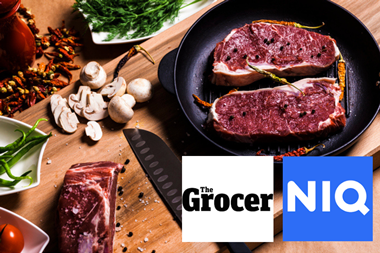
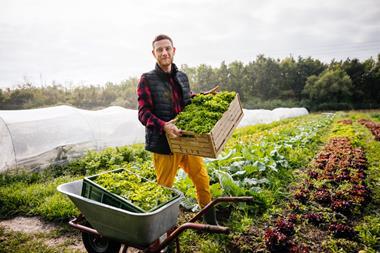

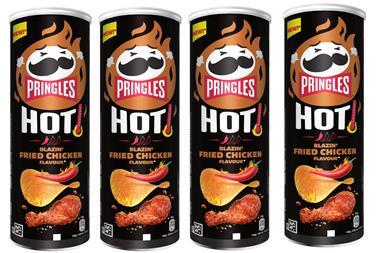

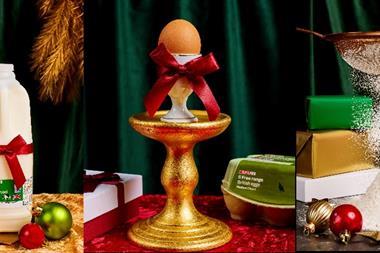

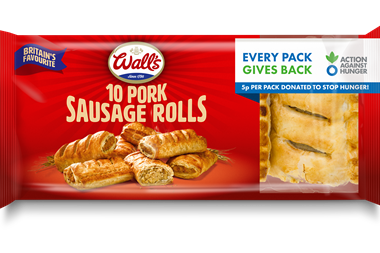
No comments yet